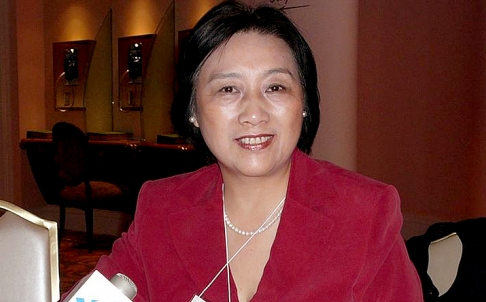Detained in April on accusations of leaking state secrets, veteran journalist Gao Yu stood trial in Beijing on Friday. Her charges are believed to stem from allegations that she leaked “Document No. 9,” an internal Party communique aimed at reinforcing ideological orthodoxy, to overseas Chinese-language magazine Mirror Monthly. The 70-year-old journalist earlier this week proclaimed her innocence, announcing that a confession aired by CCTV [Chinese] in May was extracted under duress and should be dismissed as evidence against her. The New York Times’ Didi Kirsten Tatlow reports on the four-hour closed-door trial, noting issues with allegations that Gao was responsible for exposing Document No. 9:
“She said she was innocent,” [rights lawyer] Mr. Mo [Shaoping] said in a telephone interview shortly after the trial ended. “And I said that her guilt could not be proven beyond reasonable doubt.” He added that Ms. Gao had called on the judicial authorities to implement the spirit of legal reform that has been promised by China’s leaders and judge her fairly.
[…] “We can’t be sure if Document No. 9 is an excuse or a reason for her arrest,” Chang Ping, a Chinese journalist who lives in Germany, said in a telephone interview about Ms. Gao’s trial.
“But the articles she wrote all touched on the internal politics of the Communist Party,” and lately, “on Xi Jinping,” he said. Ms. Gao was published widely on Deutsche Welle, the German international state broadcaster, among other media outlets.
[…] By the time she was detained, the contents of the document had already been circulating on the Internet in Chinese for months, Mr. Chang said, with versions appearing since June 2013.
[…] Ms. Gao had nothing to do with the Mirror Monthly story, said Ho Pin, chief executive of the Mirror Media Group, which owns the magazine. He said he provided a declaration to her lawyer last month to that effect. The magazine often publishes internal material from China. […] [Source]
No verdict has yet been delivered. The maximum sentencing for leaking state secrets in China is life imprisonment. Coverage from the BBC notes that Gao’s conviction is “all but certain,” outlines her previous jail sentence for similar charges, and puts this case in the context of a greater government crackdown on dissent:
Ms Gao is used to fighting with the Chinese authorities. She served more than five years in jail in the 1990s on similar charges of stealing state secrets.
She had been convicted of sending Party documents, including a speech by then-President Jiang Zemin, to a Hong Kong newspaper.
[…] “Her trial epitomises the broader deteriorating rights environment, and it brings together several strands in the current crackdown on human rights in China,” explains Maya Wang, a researcher for Human Rights Watch in Hong Kong.
“Gao is being tried for leaking state secrets abroad at a time when the government is increasingly worried about foreign interferences in the form of colour revolutions, and when it is increasing control over already limited freedom of expression.” [Source]
As part of the broad crackdown on dissent, Beijing has been aggressively targeting human rights activists and civil society organizations, while simultaneously bolstering the means to control online speech and encouraging ideological orthodoxy in both the Party and society at large. Yesterday it was reported that rights lawyer Pu Zhiqiang, who had been arrested in June on charges of “causing a disturbance” and “illegally obtaining personal information,” may be facing the additional charges of “inciting ethnic hatred” and “separatism” for a microblog post criticizing Beijing’s policies in Xinjiang. As Gao was standing trial on Friday, moderate Uyghur advocate Ilham Tohti’s life sentence was being upheld by an Urumqi court.
Also see a Global Times op-ed castigating foreign media and rights groups for “hyping Gao’s case.”








